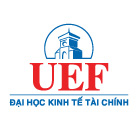Thông báo
CALL FOR CHAPTERS: SERVICE INNOVATION FOR CLIMATE-RESILIENT GROWTH
27/11/2025
The Department of Science, Technology and International Projects at the University of Economics and Finance is delighted to announce an ambitious international research project that positions UEF and the Global South at the center of solving one of humanity's defining challenges: how service innovation can simultaneously drive economic growth and climate resilience in emerging markets.
Co-edited by UEF's Ngan Truong alongside leading scholars from Northumbria University (UK), Universitas Negeri Makassar (Indonesia), and the University of Portsmouth (UK), this initiative represents a powerful commitment to research that is both intellectually rigorous and practically grounded in the realities of developing economies.
The Paradox of Emerging Markets: Growth Under Climate Pressure
Emerging economies face an unprecedented paradox. As service sectors expand—driving employment, GDP growth, and urban development—these same economies confront accelerating climate impacts: extreme weather disrupting agriculture, water stress threatening urban services, rising temperatures challenging tourism and hospitality, supply chain vulnerabilities exposing food security. Traditional development pathways that worked for today's wealthy nations are increasingly incompatible with planetary boundaries.
Yet this crisis contains hidden opportunity. Service innovation—fundamentally redesigning how societies deliver value to citizens—offers a pathway forward. Unlike capital-intensive manufacturing transformations, service innovation can leverage digital platforms, circular design principles, and inclusive business models to achieve climate resilience while expanding economic opportunities for vulnerable populations.
The question is not whether this transition is possible. Across tourism, food systems, urban infrastructure, and financial services, innovative organizations are already demonstrating it. The question is whether this remains scattered experimentation or whether it becomes systematic, scalable, and universally accessible.
Why This Research Agenda Matters Now
Scholarly understanding of service innovation remains frustratingly fragmented. Academic research on climate adaptation tends to focus on technology or policy, overlooking how services are fundamentally reorganized. Service innovation scholarship rarely integrates climate and equity dimensions. Development economics often divorces economic growth from environmental sustainability. Each discipline works in isolation from the others.
Meanwhile, practitioners across the Global South are experimenting rapidly—creating community-based tourism models that preserve local ecosystems, redesigning food systems for climate resilience while improving farmer livelihoods, building fintech solutions that serve unbanked populations while reducing environmental footprints. Yet these innovations remain underdocumented, ungeneralized, and undertheorized. Knowledge accumulates slowly. Best practices spread sporadically. The pace of learning lags behind the pace of climate change.
This research initiative directly addresses this gap, consolidating emerging evidence into systematic knowledge that accelerates learning, spreads best practices, and shapes policy frameworks across the Global South.
A Truly Multidisciplinary Research Agenda
The project deliberately bridges traditionally separate domains:
Service innovation and management: How do organizations fundamentally redesign service delivery? What business models, organizational structures, and leadership approaches enable transformation?
Sustainability and circular economy: How do services minimize resource consumption and waste? How do circular design principles translate into operational practice? What measurement systems capture environmental performance?
Digital platforms and technology: How do digital solutions scale climate-resilient services? What data governance frameworks ensure responsible technology use? How do human-technology interactions strengthen or undermine resilience?
Inclusive growth and equity: How do service innovations reach vulnerable populations? Which models truly distribute benefits equitably versus concentrating gains among elites? How do inclusive business models work operationally?
Institutional and policy frameworks: What governance structures enable climate-resilient service innovation? How do regulations either accelerate or obstruct transformation? What policy interventions support scaling?
Place-based and contextual understanding: How do climate-resilient services adapt to specific geographic, economic, and cultural contexts? What works in Southeast Asia versus East Africa versus South Asia? How do practitioners translate global frameworks into local action?
Sectoral Depth Across Critical Domains
The research agenda prioritizes sectors with outsized importance for the Global South's future:
Tourism and Hospitality: Boutique hotels and community-based tourism models that generate local income while protecting ecosystems. How do hospitality businesses shift from extractive to regenerative models?
Food Systems and Agriculture: Service innovations securing food security while adapting to climate variability. How do agricultural services, supply chains, and market mechanisms incorporate climate resilience and farmer equity?
Urban Services and Infrastructure: Smart city solutions, water management, energy distribution, and waste systems. How do utilities serve growing urban populations sustainably? How do informal settlement residents access reliable services?
Financial Services and Fintech: ESG-aligned microfinance, climate-adapted insurance products, and digital financial inclusion. How do financial innovations serve both climate objectives and underbanked populations?
Public Services and Governance: Healthcare delivery, education, and government services redesigned for climate resilience and equitable access. How do public sector innovations model climate-smart service design?
Integration of Theory and Practice
Contributors will synthesize scholarly rigor with practitioner knowledge:
Conceptual models connecting service innovation literature to climate resilience research, establishing theoretical foundations for future scholarship.
Operational frameworks translating theory into actionable guidance for practitioners designing and implementing resilient service systems.
Measurement methodologies establishing how to assess success—capturing environmental impact, social equity, economic viability, and systemic resilience simultaneously.
Case studies and evidence documenting how organizations across the Global South are advancing climate-resilient service innovation, extracting generalizable insights from specific contexts.
Policy analysis and recommendations examining what governance frameworks, regulations, and public investments can accelerate transformation at scale.
Voices from the Global South Leading the Conversation
The editorial team's composition—with co-editors from Vietnam, Indonesia, the UK, and representation of South Asian and Southeast Asian perspectives—reflects deliberate commitment to centering Global South voices rather than importing external frameworks. Contributions are actively solicited from emerging-market practitioners, policymakers, and scholars whose intimate knowledge of local contexts, institutional challenges, and innovative solutions grounds the research in reality.
This approach reverses traditional development research where wealthy-country experts study poor-country problems. Here, emerging-market scholars and practitioners guide the research agenda, with international colleagues providing comparative perspective and methodological expertise.
Strategic Significance for Vietnam and Southeast Asia
For Vietnam specifically, this research agenda directly addresses the nation's critical development challenge: accelerating service-sector growth while achieving climate neutrality and reducing inequality. Vietnamese researchers contributing to this project position themselves as architects of a development model that proves sustainable growth is achievable.
UEF's leadership role signals the institution's commitment to research that bridges academic excellence with practical contribution to Vietnam's sustainable development goals.
Publication Excellence and Transformative Impact
Published by IGI Global Scientific Publishing, the book reaches diverse audiences: academic researchers advancing service and sustainability scholarship; practitioners and corporate leaders seeking strategic guidance; policymakers and development professionals designing resilience programs; graduate students and educators building emerging curricula on sustainable development.
Double-blind peer review ensures rigorous quality standards. Comprehensive indexing maximizes research visibility and accessibility, ensuring scholarly insights inform policy deliberation and organizational practice globally.
Timeline Supporting Substantive Research Contribution
The publication schedule provides realistic timeframes for research that demands both rigor and practical grounding:
- December 4, 2025: Proposal submission deadline
- December 18, 2025: Acceptance notifications
- March 19, 2026: Full chapter submission
- May–July 2026: Peer review and revision
- 2027: Publication release
The extended timeline reflects recognition that meaningful research on emerging-market service innovation requires sufficient time for fieldwork, consultation with practitioners, and integration of local knowledge.
Why Researchers and Practitioners Should Contribute
Research frontier: Few scholarly venues systematically address service innovation for climate resilience in emerging markets. Contributing positions researchers at the frontier of defining an entirely new research domain.
Real-world impact: This research will directly inform organizational strategy, policy frameworks, and development programs. Your scholarship can shape how billions of people experience climate adaptation and economic opportunity.
Global collaboration: Working alongside leading scholars from multiple continents and sectors builds networks that extend careers and open pathways to future research partnerships and funding.
Career advancement: Publication in an internationally recognized edited volume establishes expertise in a strategically important, rapidly growing field. It strengthens applications for funding, promotion, and institutional leadership roles.
Institutional prominence: UEF's leadership in this initiative—with co-editor Ngan Truong directing the project—elevates the institution's profile as a center for research on sustainable development in the Global South.
Timeliness and urgency: Climate change waits for no one. Emerging markets cannot afford to delay service innovation. Contributing now positions researchers as voices shaping the urgent conversation about humanity's sustainable future.
Comprehensive Support for Contributors
The Department of Science, Technology and International Projects provides full institutional support:
- Strategic consultation aligning research with book objectives and emerging-market context
- Proposal development guidance strengthening acceptance likelihood
- Manuscript preparation and quality assurance assistance
- Fieldwork and practitioner engagement support
- Peer review navigation and revision guidance
- Publication strategy and impact maximization
Engaging with This Initiative
Scholars and practitioners from service management, sustainability, development economics, public policy, information systems, tourism, agriculture, finance, and urban planning are warmly invited. Interdisciplinary and cross-sector perspectives are particularly valued—climate-resilient service innovation demands dialogue across traditional boundaries.
Interested contributors are encouraged to reach out with preliminary research ideas before developing formal proposals. Initial conversations often clarify research direction and strengthen proposal development.
For Inquiries or Research Consultation:
Dr. Ngan Truong, Co-Editor
University of Economics and Finance (UEF), Vietnam
Email: nganttt@uef.edu.vn
Dr. Charitha Perera, Co-Editor
Northumbria University, United Kingdom
Email: charitha.withanage@northumbria.ac.uk
Dr. Muhammad Hasan, Co-Editor
Universitas Negeri Makassar, Indonesia
Email: m.hasan@unm.ac.id
Dr. Vikas Kumar, Co-Editor
University of Portsmouth, United Kingdom
Email: vikas.kumar@port.ac.uk
A Defining Moment for Sustainable Development Research
The Global South cannot simply replicate wealthy nations' development pathways while hoping to avoid their environmental consequences. That model has failed. Yet the alternative—constraining growth to protect the environment—abandons billions of people to poverty and limited opportunity.
Service innovation offers a third pathway: simultaneous achievement of climate resilience and equitable growth, through fundamental redesign of how societies deliver value.
This research project contributes directly to charting that pathway. It consolidates emerging evidence into systematic knowledge. It bridges academic rigor with practitioner wisdom. It positions emerging-market voices at the center of solving humanity's defining challenge.
UEF invites you to contribute your expertise—whether as researcher, practitioner, policymaker, or educator—to this transformative initiative. For more information: https://www.igi-global.com/publish/call-for-papers/call-details/9432
Together, we can demonstrate that the future belongs not to nations that choose between growth and sustainability, but to those that integrate them through service innovation rooted in equity, environmental responsibility, and human dignity.
Contact the Department of Science, Technology and International Projects to explore how your research and practice can advance climate-resilient growth in the Global South.
TIN LIÊN QUAN









